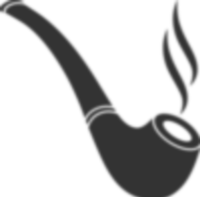As I Please: Using Computers and Books to Report

Two of my favorite tasks as a reporter, and I suspect this is true for many in the profession, are interviewing and hanging out with people and poking through old records.
I have reported from big-city ghettoes, President Trump’s Inauguration, the Speaker’s Lobby at the Capitol, small city council meetings, and the fields of rural California. Interviewing people and digging through archives are hardly the only ways to report. You can also read books and use computers.
These methods of reporting are not well known to ordinary people, although the movie “Spotlight” showed the Boston Globe reporters using computers to spot patterns in the Boston archdiocese’s sex abuse scandal. Yet they are well-known enough among print reporters. When I was a cub reporter in the 1990s, the term “computer-assisted reporting” was in vogue.
The two stories that caught my attention this week dealt with these two lesser-known forms of gathering facts:
Obituary on the Father of Data Journalism. Philip Meyer was a national correspondent for the Akron Beacon Journal in 1967 when he debunked the idea that Detroit’s riots were caused mainly by poor, uneducated Black migrants from the South. He showed in fact, that most rioters were locals and came evenly from all economic classes and that the most predictive factor among rioters was joblessness.
How Mr. Meyer pulled off this feat is a story by itself. He partnered with the Detroit Urban League, a nonprofit composed mainly of middle-class Blacks, who surveyed more than 400 city Blacks. The interviewers acted more like social scientists than reporters, as they asked the same questions over and over to residents. Eventually, Mr. Meyer accumulated the data, put it in a computer, and voila. The Detroit Free Press, a daily that like the Beacon Journal was part of the Knight Newspaper chain, was honored with a Pulitzer Prize in 1968.
Mr. Meyer’s influence can be seen in the work of journalistic “quants” like Nate Silver, founder of Five Thirty Eight (now 538).
Summarize the Book You Read and Write Down Ideas It Sparked. A couple of weeks ago, I advised readers to read twenty-five pages from a book each day and type up your notes after an interview. I have also written about Niklas Luhmann’s Zettelkasten method of notetaking. Jazz critic and music historian Ted Gioia did me one better by advising readers to summarize each book they and write down the ideas it spawned.
The benefit of writing a book summary are more general than specific, Mr. Gioia writes. You become a better reader and learner. “The discipline of taking notes can evolve into taking notice—which is a much higher-level activity,” he wrote.
A confession: I am an irregular practitioner of summarizing books. I have done it at times and not done it at others. I feel guilty, but I hereby resolve to spend two hours maximum to summarizing the book I read. Here’s to rewarding our future selves!
What did everybody else think?

0 Comments